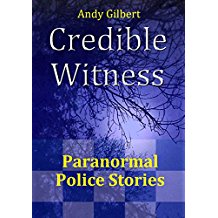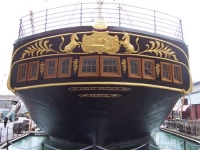Minerva Inn, Plymouth
Dating from the late 16th century or early 17th century*, the Grade II listed Minerva is Plymouth’s oldest serving public house. Found at 31 Looe Street, the Minerva was associated with Plymouth’s Press Gangs and many a customer in the 17th century were tricked into service aboard Navy vessels.
According to their website the Minerva reputedly haunted with “First hand experiences in recent years have included a levitating spoon, numerous instances of the cellar gas being turned off, the juke box playing after it has been switched off, and a small figure standing at the bar. There are other ghostly tales from past landlords and locals of a couple of prostitutes sitting directly under the dart board where the original entrance door was , and our pet dogs don’t seem keen on that area of the pub, so maybe they sense something too!”




Re: Minerva Inn, Plymouth
The following article by Louise Daniel entitled ‘Ghostly goings on at the Minerva’ was published in the Plymouth Herald on 17 October 2014.
The Minerva on Looe Street is named after the goddess of wisdom. Even as a dyed-in-the-wool sceptic I doubted my own wisdom upon entering the historic pub in the wee small hours for a ghost watch.
I expected goose bumps, ghosts and ghouls but needn’t have worried – Kevin Hynes and Chris Eddings of Haunted Plymouth (the ghost watchers in charge) are far from spooky.
Kevin tells me he has had his fair share of paranormal experiences over the years but is always looking to find a rational explanation for the cause of supernatural occurrences.
His mate Chris has been interested in the supernatural since his early teens when he witnessed what he believed to be the ghost of a young boy.
By day they are plastering lecturers at City College Plymouth but by night they rove the region looking for ghostly goings on using their psychic abilities to investigate the paranormal.
It’s all very informal tonight – with Kevin and Chris are Minerva owners, Shelly and Martin, and a couple of well-oiled locals.
The ghost-hunting kit is stripped down this evening – EMF (electromagnetic field) meter for temperature and electrical readings; an SB7 ‘spirit box’ scanning radio frequencies in reverse to source otherworldly chatter; a contemporary ghost radar app on two smart phones showing where the spirits are situated (and speaking words in an electronic disembodied voice – which is very disconcerting!); and also divining rods with which you can ask spirits the where, what, why and when of a purported soul’s passing.
Divining or dowsing is an ancient art dating back to the time of cave paintings and is even recorded in the Bible. It was denounced in the 15th century as evil but (perversely) used to divine the location of witches.
The abuse of the method (and subsequent murder of hundreds of innocents) led to a decree forbidding the use of dowsing rods for the purposes of justice.
Today people use them to find anything from rare mineral elements to underground streams.
Though luminaries like Albert Einstein and Leonardo da Vinci advocated dowsing, the practice’s accuracy has been compared to a random guess.
Random or not, tonight we are dowsing for ghosts.
It’s one o’clock and after a brief explanation of how to hold the metal rods – shoulder width apart, chest height – I look for a ‘yes’ (left turn), ‘no’ (right turn) or a strong affirmative (crossed rods).
The ghost radar and EMF confirm where ghosts are mingling and, as I step into that area, I feel instantly peculiar.
For a start it’s cold – the hair on my forearms and neck rises and I am slightly disorientated. I’m oddly nauseous and my heart starts racing. Is this nerves, excitement, anticipation, or something more?
My sceptic heart says no. Though the experience is exhilarating and it’s hard to explain why the rods move freely in my hands, I can’t say I’m spooked. It’s more like asking questions of a Magic Eight Ball – the answers are probably random and not necessarily specific to anyone.
According to Kevin, there are four spirits in here tonight and sure enough four communicate with our motley crew via the dowsing rods.
One of them is Eddie Blake – who apparently shoved a hapless customer down the steps and now frequents the back room snug.
He says he died in the 1750s and was a skipper of a smuggling vessel – strange because the ghost radar throws out the word ‘captain’ four times during the course of the ghost hunt.
Eddie says he died accidentally when he was 44 and teases us all by saying there is contraband in the Minerva but we can’t hope to find it.
There are also ghosts of an eight-year-old child, as well as Elizabeth (dead in her 30s from consumption or child birth depending on who you listen to) and May, the fifty-something prostitute who gets annoyed when asked if she charged a ha’penny.
Chris tells me that May likes to sit in peace by the window smoking her pipe and enjoyed her work until her death sometime in the 1750s.
Do I believe now? No, but wouldn’t rule out trying it again. It’s a thoroughly enjoyable but decidedly unscary experience.